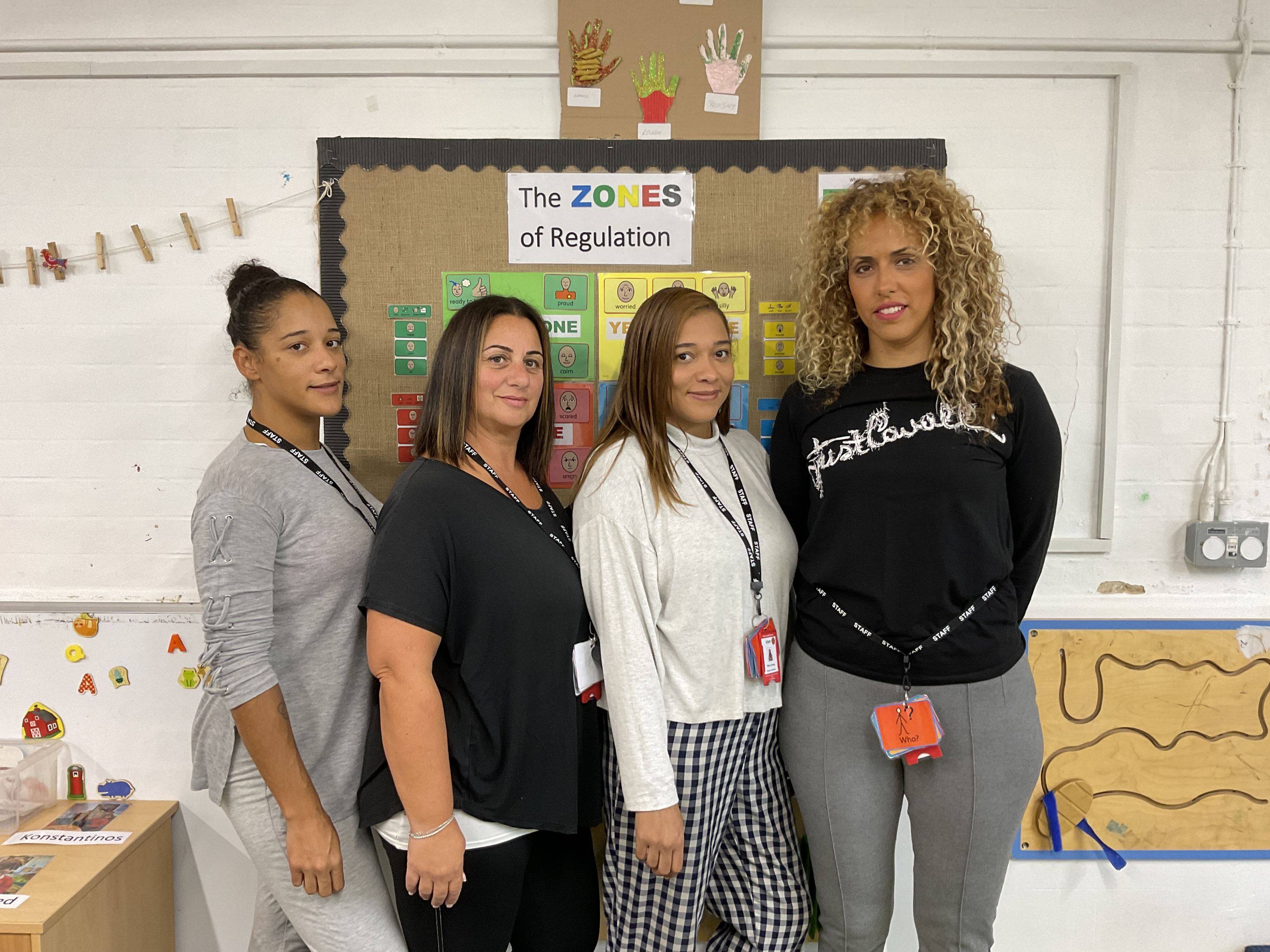SEND & Inclusion
At Hazelwood Schools, we believe all children have the right to fulfil their individual potential through a caring, supportive and inclusive learning environment.
Hazelwood is a child-centred and inclusive school. We strive to offer educational opportunities and learning experiences for children with SEND, enabling them to access the full curriculum and supporting them to reach their full potential in line with our school vision.
At Hazelwood, we aim to fulfil this by providing 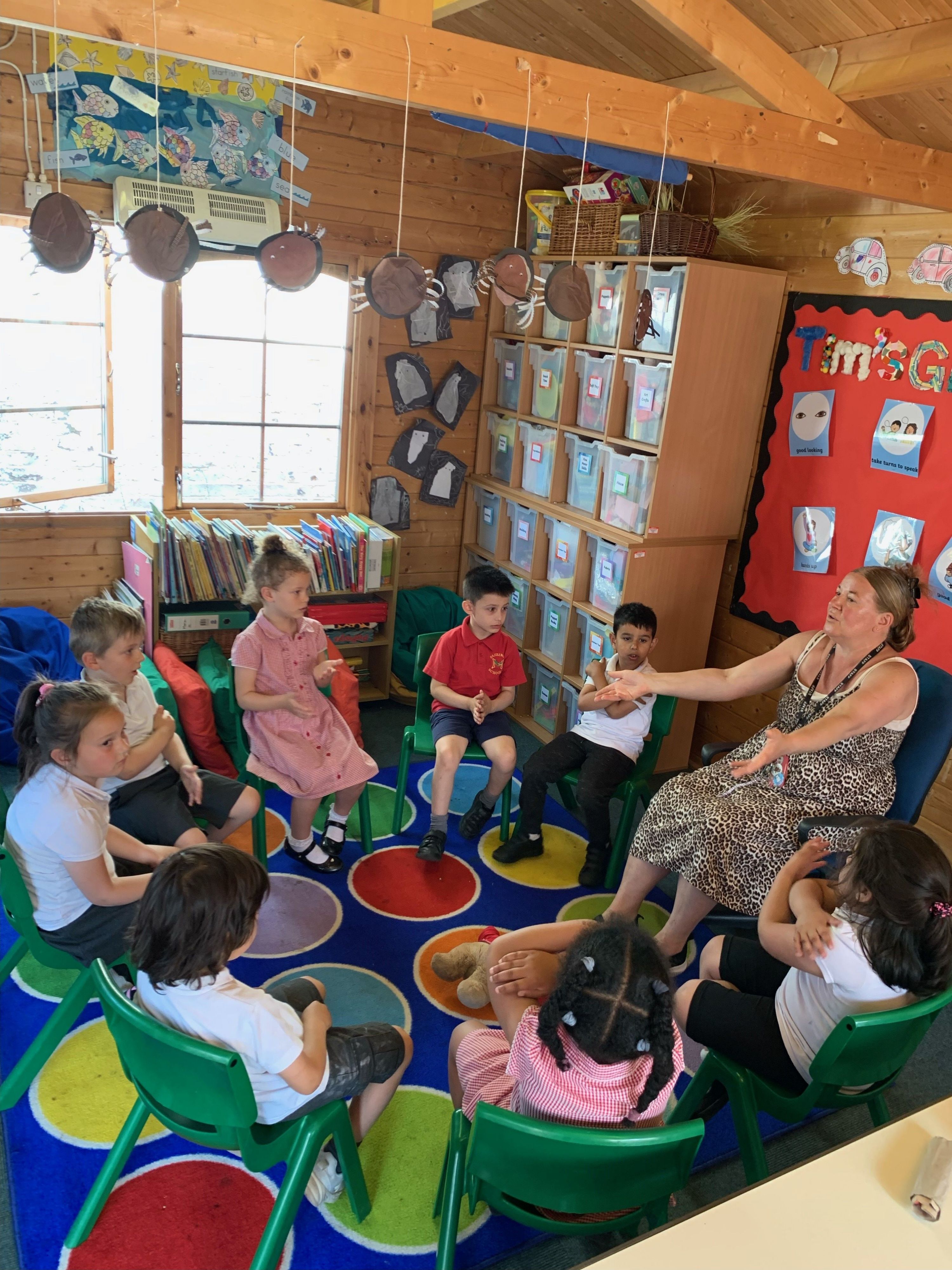 positive high-impact support in the form of quality first teaching, additional school support measures, training and resources and making reasonable adjustments along the way to suit the needs of our learners. Our inclusive ethos is guided by our moral purpose and driven by our Hazelwood vision and values, where every child is encouraged to ‘Believe and Achieve’.
positive high-impact support in the form of quality first teaching, additional school support measures, training and resources and making reasonable adjustments along the way to suit the needs of our learners. Our inclusive ethos is guided by our moral purpose and driven by our Hazelwood vision and values, where every child is encouraged to ‘Believe and Achieve’.
It is our aim to identify children with special educational needs as early as possible, in order to provide appropriate support to maximise their future success.
All staff at Hazelwood have a shared responsibility to make appropriate provision for pupils with SEND.
As well as your child's class teacher, our Inclusion Team consisting of Mrs Erina Komodromos (Inclusion Manager), Mrs Sarah Hatswell (SENDCo) and Mrs Crissy Walls (Learning Mentor) are available to talk through any concerns that you have about your child's additional needs, pastoral support and wellbeing.
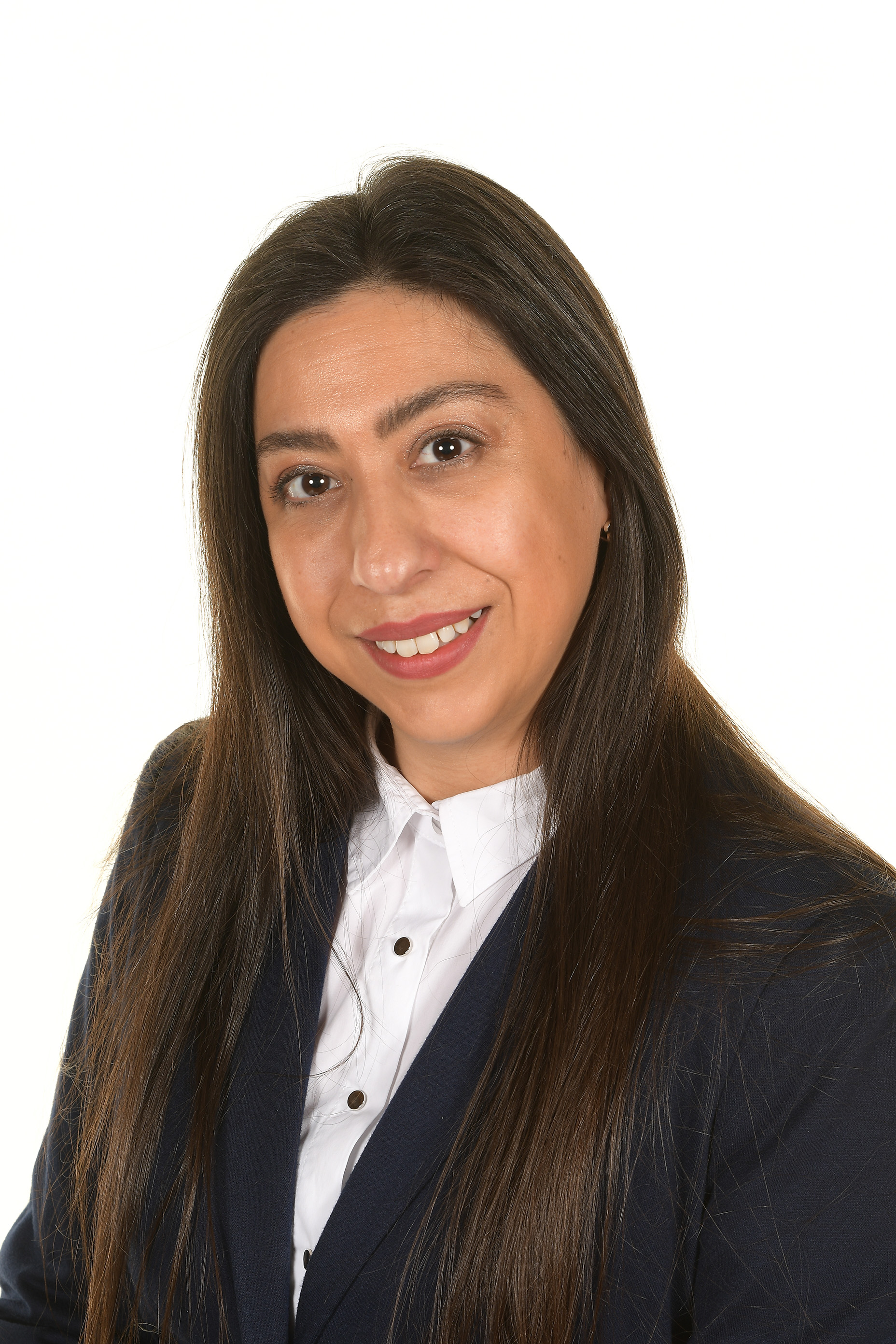
Inclusion Manager
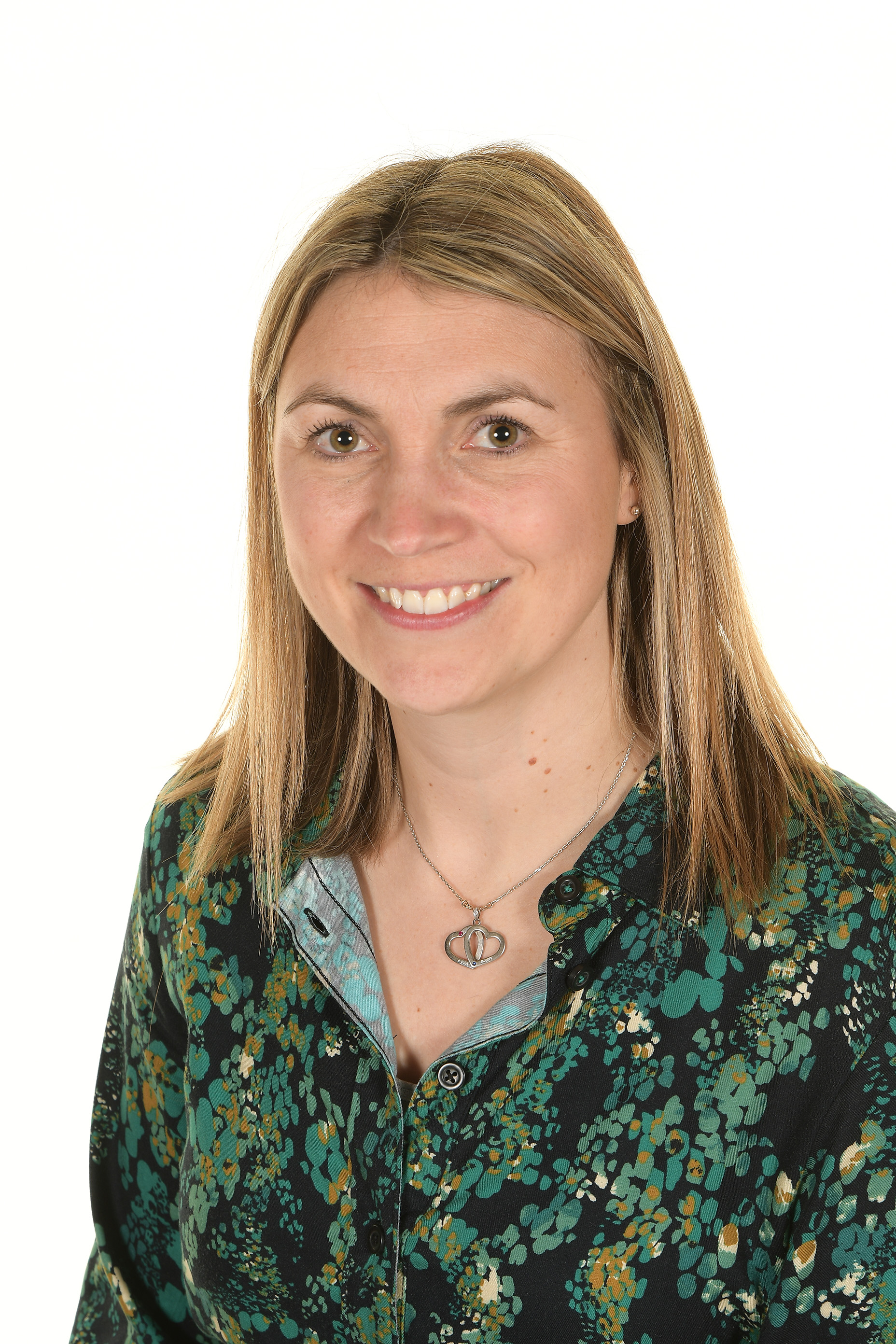
SENDCo
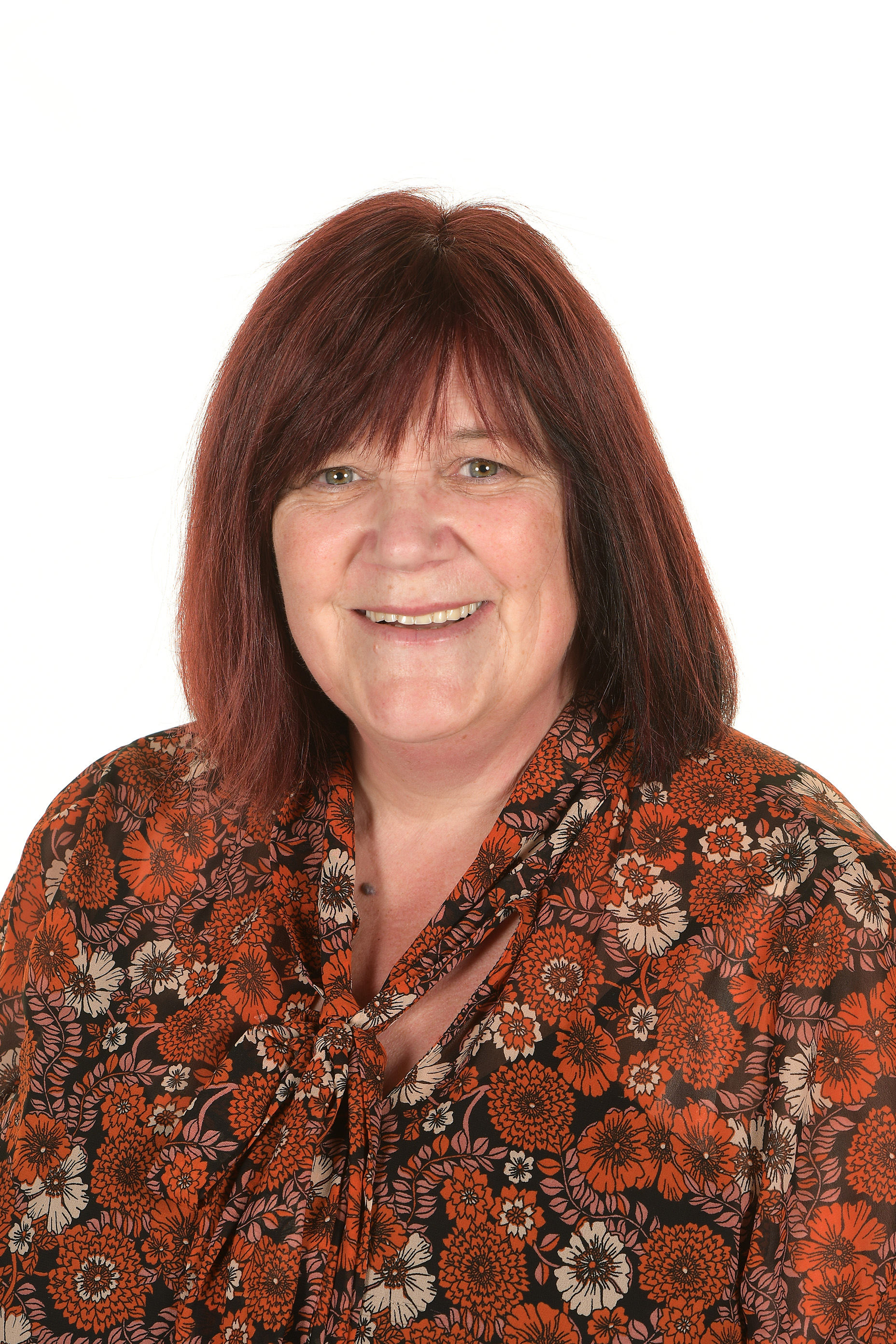
Learning Mentor
Please contact any member of the Inclusion Team by emailing office@hazelwood.enfield.sch.uk or phoning 020 8886 3216
Key Policies and documents
- Hazelwood SEND Information Report
- Hazelwood SEND Policy
- Accessibility Plan 2025-2028
- Enfield’s Local Offer
- Enfield’s Special Educational Needs and Disabilities (SEND) Partnership Strategy 2022-2026
- Special Educational Needs and Disability Information, Advice and Support Service (SENDIASS)
- SEND Code of Practice
- Learning Support Base (The Orchard) Policy
At Hazelwood Schools, we have a wide range of tailored provision that includes:
- Visual timetables in every room
- Targeted teaching and interventions
- 1:1 and group teaching and tutoring
- Orchard Provision (for younger children with ASD needing personalised timetables and curriculum)
- A sensory room within the Orchard Provision
- SEND Support at Lunchtime
- Pastoral support from our Learning Mentor
- Happy Feet (Development of Gross Motor Skills and Coordination)
- Tim’s Group (Development of Language and Social Skills)
- Visual symbols for communication
- Speech and Language support
- A range of resources specific to the need
- Highly trained members of staff to support our children with additional needs
We are proud to offer dedicated spaces specifically for children with SEND, to access throughout the day including at lunchtime. Offering a safe and familiar space to children who have additional needs, has a hugely positive impact on enabling them to have a successful day despite any difficulties they may encounter.
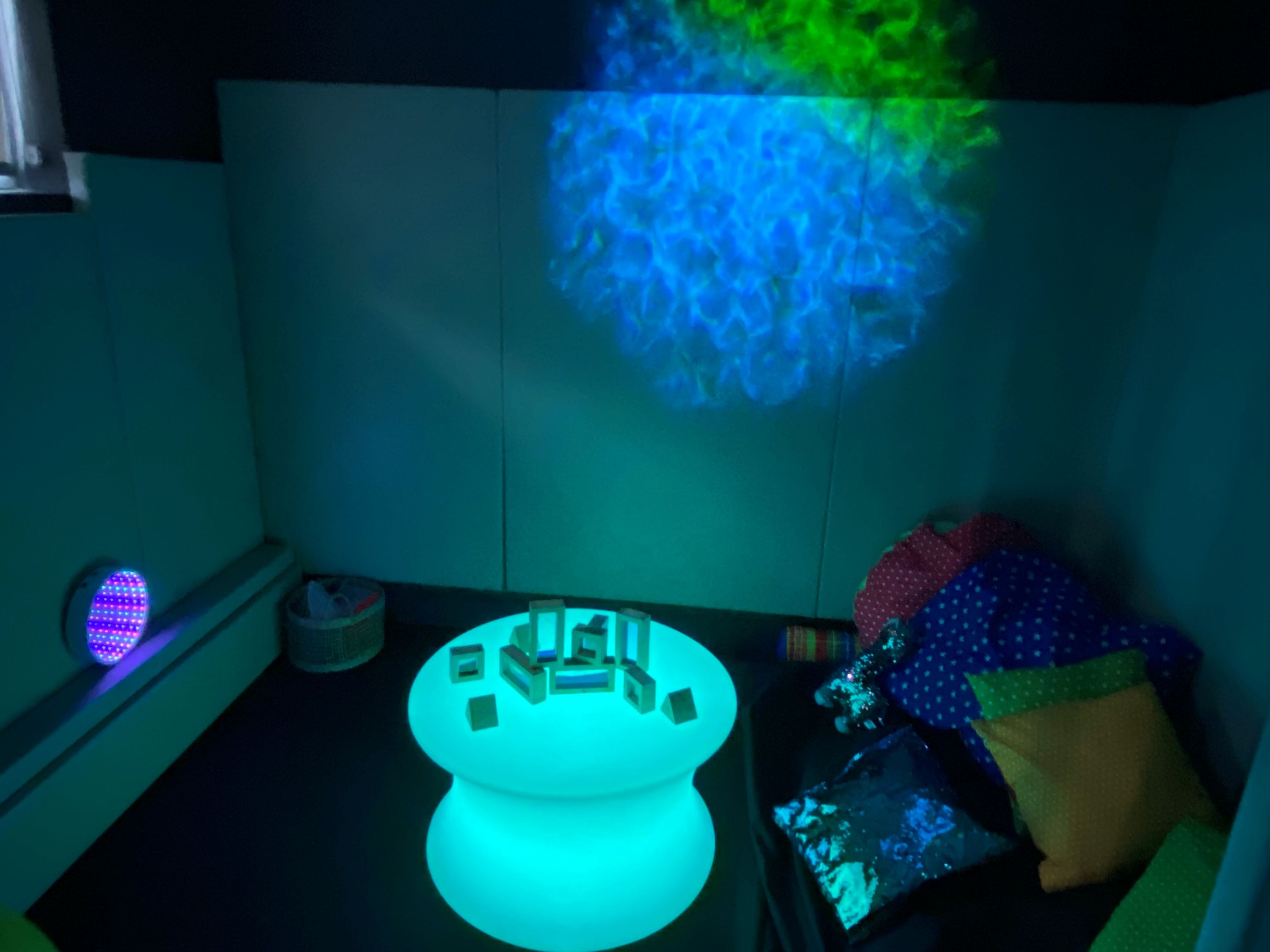
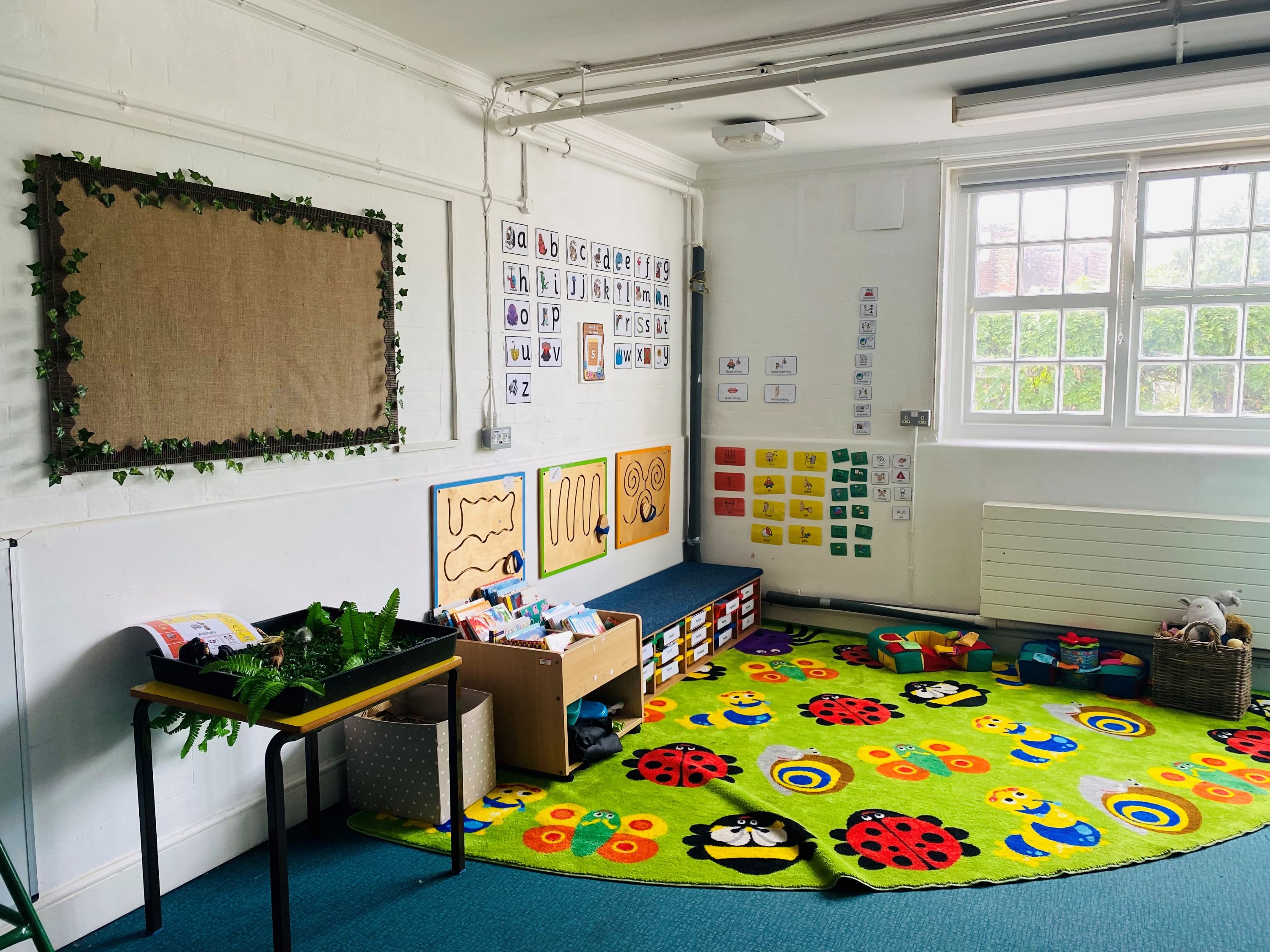
Our Learning Support Base (Orchard) Key Staff
Our Hazelwood Team of boccie players winning
the ETSP tournament in February 2025
SEND Processes & key information
Identification of SEND at Hazelwood Schools
If you have a concern that your child is presenting with additional needs in comparison to their peers, or have general concerns about their development and progress or suspect a specific learning difficulty, then you can raise a concern with the school. This could be within any of the following areas of need:
- Cognition and Learning
- Communication and Interaction
- Social, Emotional and Mental Health
- Sensory and/or Physical
Please speak to your child’s class teacher initially to raise your concerns. However, the Inclusion Team are also available to support via the school office. Our contact details are above.
Once you have raised your concern, the process which follows is outlined below:
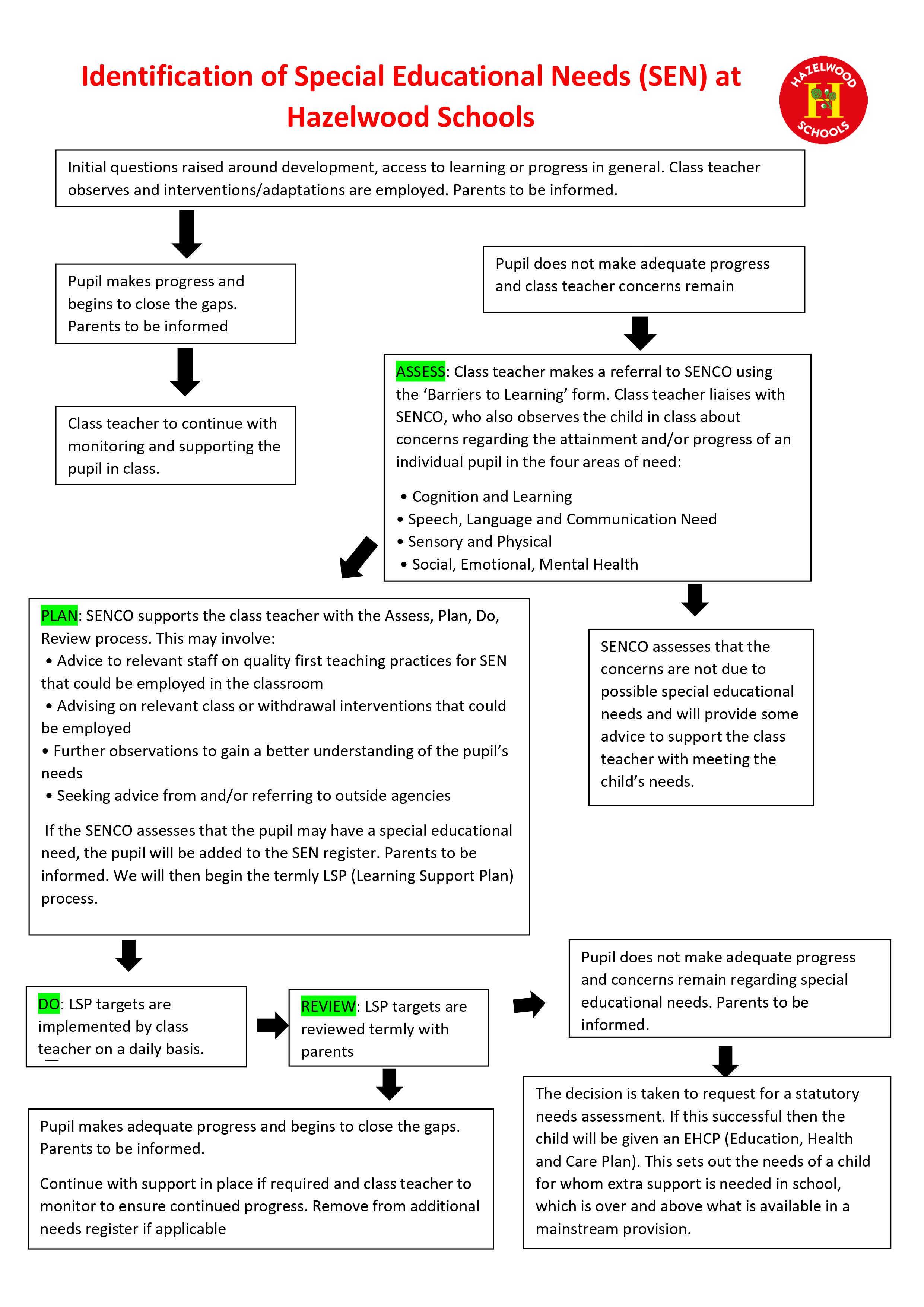
Learning Support Plans (LSP)
What is an LSP?
A Learning Support Plan (LSP) is a document for children who are on the school SEND register. It outlines their current barriers and needs including their progress history. The aim is to keep the targets relevant and up to date hence why they are reviewed every term. Targets should be specific, measurable, achievable, relevant and timebound (SMART) and teachers regularly receive training on this.
LSPs are for children who are on SEND support or who also have an EHCP. LSPs and EHCPs are two separate documents. This is because an EHCP is awarded by the Local Authority via a different process, whereas an LSP is completed internally within the school.
The Process of the LSP cycle
The review of LSPs, with parents and carers, takes place over a 4-week window which will always be the last 4 weeks of every term.
Week 1/2
- Teachers will review your child’s current LSP and create a new LSP (draft) for the new term.
Week 2
- LSPs will be emailed to parents via the school office for them to check along with a pupil voice questionnaire which is to be completed with the child at home.
- Parents then have time to read the LSP before finalising it with the class teacher in week 3 during the meeting/telephone conversation.
- The class teacher will speak with parents to arrange a time to discuss the reviewed LSP and the new draft LSP.
Week 3
- Parents will discuss and finalise the child’s LSP with the class teacher.
Week 4
- The child’s class teacher will finalise the LSP document following the parents input, if there are any changes to be made.
- The final LSP will be emailed out to parents via the school office by the end of this week
Pupil Voice Questionnaire
Attached to the draft LSP there will be a pupil voice questionnaire to complete with your child at home. If you feel that anything from their answers should be shared with their class teacher you can do this during your LSP discussion. The purpose of the questionnaire is to feed into the new LSP to support your child’s needs accordingly. Please note, the questionnaire does not need to be returned to the school.
Education Health and Care Plans (EHCP)
What is an EHCP?
An Education, Health and Care plan ('EHC plan') is a legal document. It sets out a child / young person's special educational needs, the support they need, and what they'd like to achieve. It covers birth to 25 years (if a young person stays in education).
EHC plans identify educational, health and social needs and set out the additional support to meet those needs.
If a child has a significant and long-term special educational need or disability that the setting or parent thinks cannot be supported by the ordinary provision already available in the setting, then an application for an education health and needs assessment can be made.
Requesting an EHC assessment
You can ask the Local Authority to carry out an assessment if you think your child needs an EHC plan.
A young person can request an assessment themselves if they’re aged 16 to 25.
A request can also be made by anyone else who thinks an assessment may be necessary, including doctors, health visitors, teachers, parents and family friends.
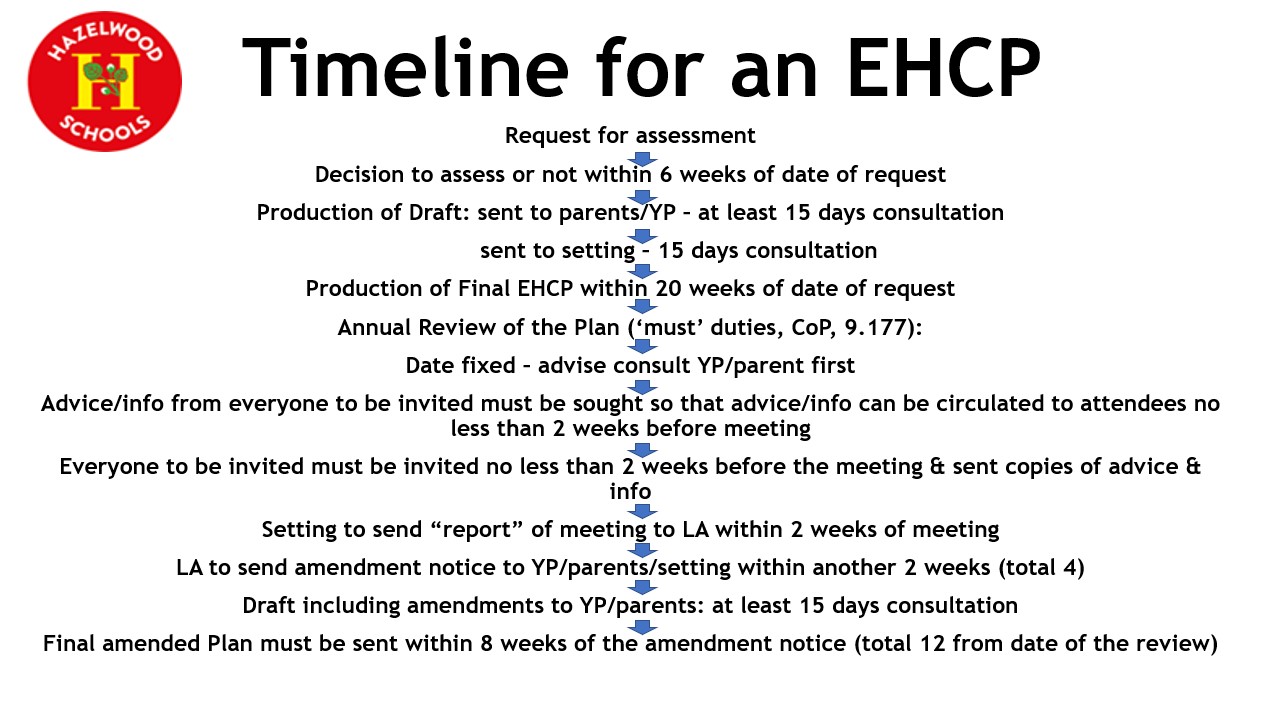
Strategies and resources to support transition
At Hazelwood, transition for our children is really important. 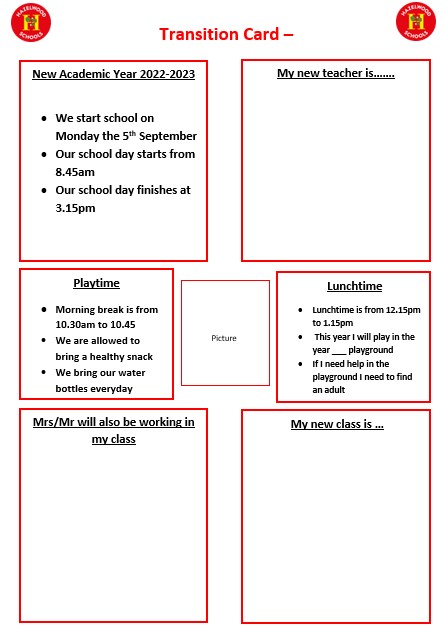 Strategies and resources to support SEND children with transition include:
Strategies and resources to support SEND children with transition include:
- Pupil transition cards
- Pupil profiles
- Support staff transition meetings
- Discussions between current and new teacher
- Visits to the new classroom and new class teacher
- Photos of the new teacher and support staff included in the transition card
- Use circle time to discuss worries/anxieties of moving class
- Peer conversations: sharing all the good things about being in that year group
Complaints
If you are a parent of a child with SEND and wish to make a complaint, please contact Mrs Komodromos, Inclusion Manager, on ekomodromos@hazelwood.enfield.sch.uk or Mrs Hatswell, SENDCo, on shatswell@hazelwood.enfield.sch.uk who will endeavour to support you. If you wish to take the complaint further, you can follow the steps outlined in our Complaints Policy.
Enfield Inclusion Charter
Hazelwood Schools is proud to have signed 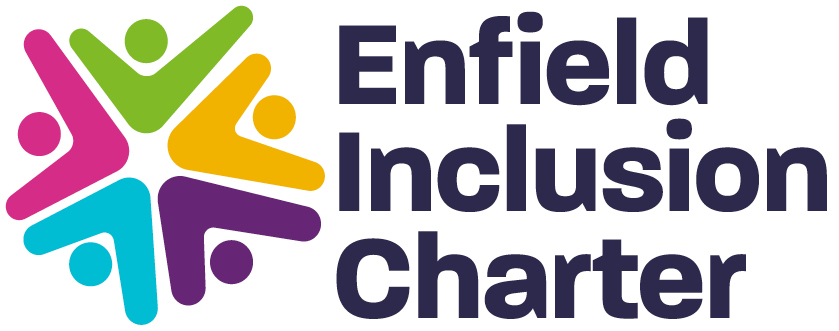 up to the Enfield Inclusion Charter. The Enfield School Inclusion Charter has been developed by education settings (heads, teachers, parents and guardians, council officers and others) all working to provide high-quality education for every pupil. We believe that the most effective schools are educationally inclusive and pay attention to the different levels of support that pupils need. We all have a role to play in offering children and young people with special educational needs and disabilities (SEND) access to an excellent education. By supporting and delivering this charter in your educational setting, you will join a community of equity champions and demonstrate a commitment to making schools and education more inclusive
up to the Enfield Inclusion Charter. The Enfield School Inclusion Charter has been developed by education settings (heads, teachers, parents and guardians, council officers and others) all working to provide high-quality education for every pupil. We believe that the most effective schools are educationally inclusive and pay attention to the different levels of support that pupils need. We all have a role to play in offering children and young people with special educational needs and disabilities (SEND) access to an excellent education. By supporting and delivering this charter in your educational setting, you will join a community of equity champions and demonstrate a commitment to making schools and education more inclusive
sEND Awareness Days
Here at Hazelwood we value and encourage difference. Our SEND awareness days are an opportunity for our school, as a community, to learn about some of these differences and to celebrate them. During the given week or day, the children will be given an opportunity (age appropriate) to learn about, understand and discuss the needs of children with SEND. This may consist of a discussion, watching videos or carrying out activities linked to each awareness day. Of course, we maintain sensitivity and confidentiality when doing this as a means to encourage inclusion, not to label or identify individuals unless specifically requested by the parents.
Click below for our SEND Awareness Days this academic year
Coffee Mornings
EASA Coffee Mornings
We hold termly coffee mornings for our Hazelwood parents with an SEND focus which varies each time, but occasionally we like to also offer an opportunity for parents to come and network with us and talk about special educational needs. It is also an opportunity to answer any questions parents may have on SEND and the provisions at Hazelwood Schools. On this occasion we invited EASA (Enfield Advisory Service for Autism) to come in and speak about the services they offer within the Enfield community which was very supportive and useful. They also showed parents how to access the services and talked about what they would expect from each service. Since then many of our Hazelwood parents have accessed the service to support their own children both at home and at school.
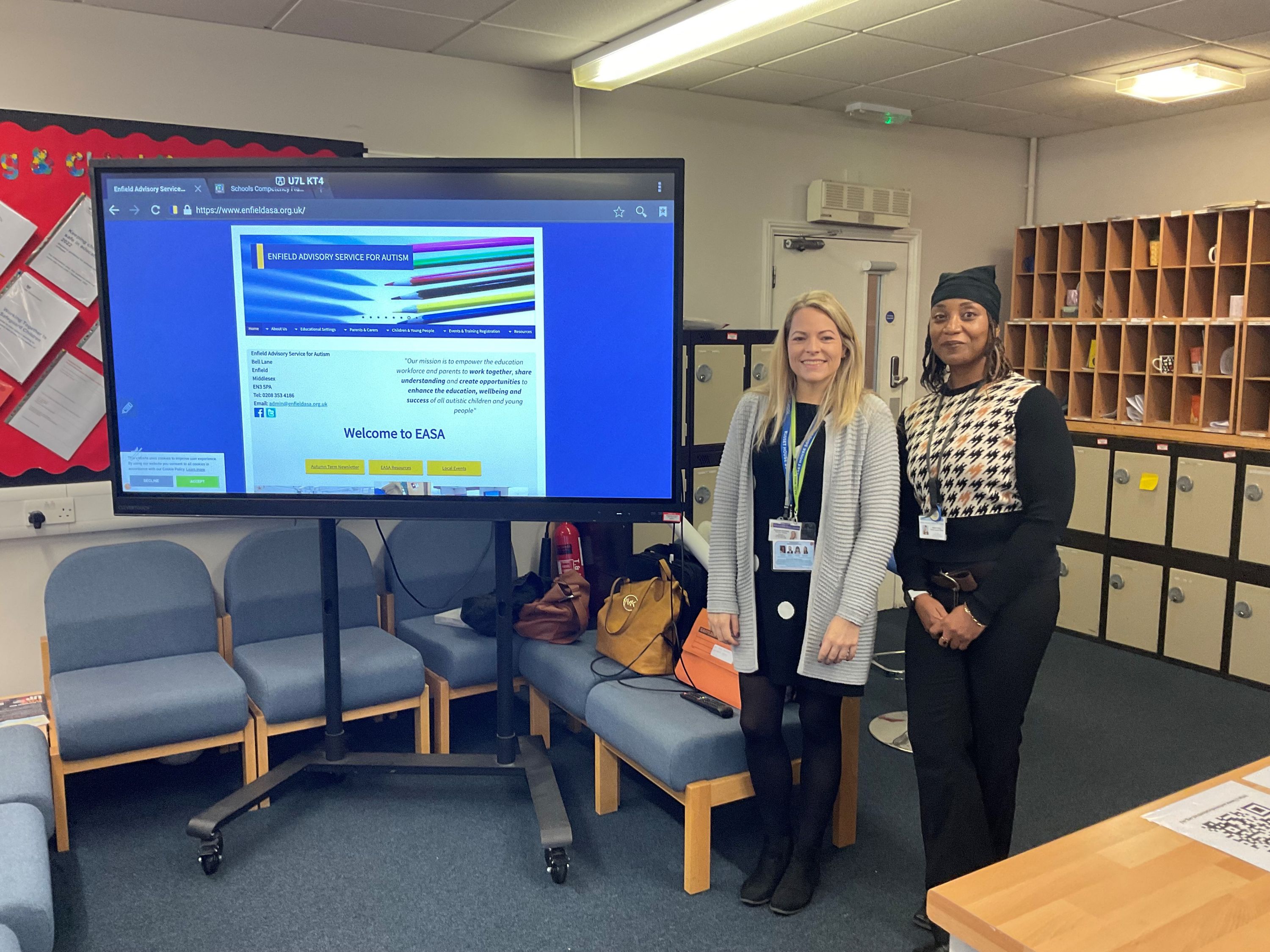

PDA Coffee mornings
Our most recent coffee morning here at  Hazelwood focused on PDA (Pathological Demand Avoidance) which is a profile of Autism that is becoming more apparent in children with Autism in the last couple of years, particular post pandemic. We invited our school Educational Psychologist (EP) to join us to talk about the SEND need and to answer the many questions that parents had. Parents and staff also had the opportunity to describe their own experiences and knowledge of PDA which was really supportive to all.
Hazelwood focused on PDA (Pathological Demand Avoidance) which is a profile of Autism that is becoming more apparent in children with Autism in the last couple of years, particular post pandemic. We invited our school Educational Psychologist (EP) to join us to talk about the SEND need and to answer the many questions that parents had. Parents and staff also had the opportunity to describe their own experiences and knowledge of PDA which was really supportive to all.
Communication
The parent partnership meeting in June focused on communication.
We discussed and explored the following:
- the importance of communication
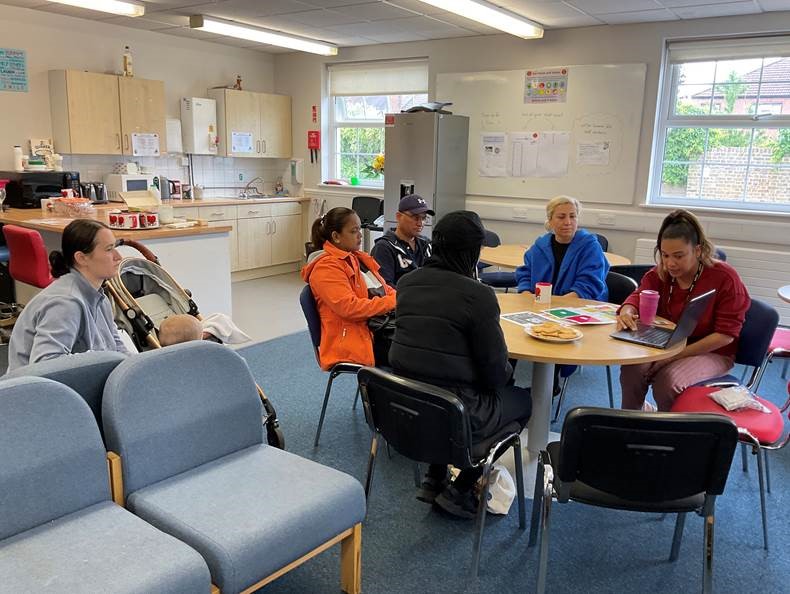
- different ways to enhance communications for children with SEN
- how to use Widgit and navigate the programme that is used at Hazelwood
- how to make different types of resources
- Makaton signs that we use in the Orchard at Hazelwood
- how to use the visual timetables, core boards, now and next boards and the choice boards
We then wrapped it all by giving parents the opportunity to share personal examples of how they feel their children have progressed this last year, which was lovely to hear.
Useful information for parents - autism
What is autism? (video)
Book list for children and parents
Please click here to access a suggested Book List
national autistic society - amazing things happen (video)
Websites and support for parents of children with Autism
National Autistic Society
National Autistic Society (autism.org.uk)
EASA – Enfield Advisory Service for Enfield (Please note you do not need a diagnosis to get support)
Enfield Advisory Service for Autism - Home (enfieldasa.org.uk)
PDA (Pathological Demand Avoidance) Society
PDA Society – Pathological Demand Avoidance – Part of the Autism Spectrum
PDA society diagnosing PDA link:
Diagnosing PDA – children – PDA Society
Witherslack Group – Provide FREE expert advice, support and resources to parents
Special Educational Needs Schools & SEND Support - Witherslack Group
A Good Diet for Children with Autism
If you’re looking for the best diet for autism, one thing to consider is that every child is different so there isn’t just one autism diet that works. However, some studies have shown that children with autism tend to be deficient in certain nutrients, so focusing on foods that provide the most nutrition is key.
Some autistic children have a restricted diet, others may over eat and sensory needs often cause issues.
Click here for an information page on suggested diets.
Pathological Demand Avoidance (PDA)
PDA is a profile of autism which involves the avoidance of everyday demands and the use of social strategies as part of the avoidance.
Key features of PDA profile
-
- Resisting and avoiding ordinary demands of life
- Using social strategies as part of avoidance
- Appearing sociable but lacking some understanding, which may mask underlying differences and difficulties in social interactions and communication
- Experiencing intense emotions and mood swings, as well as struggling to regulate feelings and emotions
- Appearing comfortable in role play, pretense and fantasy
- Focus intently, often on other people, and repetitive or restrictive interests
- Need for control driven by anxiety or automatic threat response in the face of demands
- Tendency not to respond to conventional approaches in support, parenting or teaching
Click here for the PDA Society What is PDA? Booklet
Click here for the Enfield Educational Psychology Service Parent PDA Handout
Click here for the Positive PDA Strategies
Emotionally Based School Avoidance (EBSA)
What is EBSA?
Worrying or anxiety is a normal feeling that we all experience from time to time. It can even keep us safe from harm or help us perform in difficult situations. However, sometimes anxiety or excessive worrying can become a problem especially when it stops people doing what they want or need to do. Many children and young people worry about school. This is normal. Anxieties are part of life and learning to deal with them is part of growing up. However sometimes a child’s worries may lead to difficulties attending school. If your child has high levels of anxiety and does not want to attend school they may be experiencing Emotionally Based School Avoidance (EBSA).
For more information, please click on the West Sussex Information Booklet and feel free to speak to a member of the Inclusion Team.
Useful videos for Parents
Making Sense of Sensory Processing Disorder (SPD)
Let’s Talk About ADHD
See Dyslexia Differently
Visual Support
Zones of Regulation – Feeling and Emotions
Developing a Child’s Communication Skills
Child Language Development

